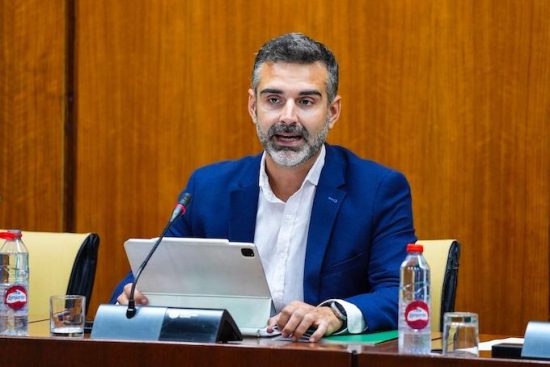 The Andalusian Government is continuing to develop the planned water policy to meet the water needs in Andalusia and, in this regard, the Minister of Agriculture, Fisheries, Water and Rural Development, Ramón Fernández-Pacheco, has indicated in the regional Parliament that the Junta is preparing a new package of hydraulic works worth 240 million euros. These are, he said, “interventions that will involve the formalisation of 65 new contracts for works and services”.
The Andalusian Government is continuing to develop the planned water policy to meet the water needs in Andalusia and, in this regard, the Minister of Agriculture, Fisheries, Water and Rural Development, Ramón Fernández-Pacheco, has indicated in the regional Parliament that the Junta is preparing a new package of hydraulic works worth 240 million euros. These are, he said, “interventions that will involve the formalisation of 65 new contracts for works and services”.
In response to a question posed by the Agriculture Committee, the minister stressed that, in recent years, “water infrastructure has led the way in the awarding of public works, as a result of water policy planning carried out by the Andalusian Government.”
Fernández-Pacheco also recalled that the Andalusian Government has already mobilised 1.5 billion euros for water. “We have done our homework and we will continue working along the same lines”, given that “investment in water is essential within the framework of a real water policy, which is what is being carried out in Andalusia”.

During his parliamentary speech, the minister expressed the Andalusian Government’s desire to continue moving forward with the new tenders that will be added to the works of the drought decrees. «We are promoting actions to supply water to the mainland, improve hydraulic assets and purify waste water.»
In line with this statement, the councillor has mentioned some of the works that are going to be put out to tender, such as the adaptation and improvement of the Waste Water Treatment Plant (WWTP) in Huelva, with 44 million euros; the works for the supply of Cerro Muriano in Córdoba, with an investment of 16 million euros; the extension and improvement of the Drinking Water Treatment Plant (DWTP) in Río Verde in Marbella for 36 million euros and the grouping of discharges and purification in the Almeria municipalities of Balanegra, Cantoria and Huércal Overa , for 14 million.
The Andalusian Government’s head of Water has also called on all administrations «to pitch in and get involved in order to, within the framework of their powers, create the water infrastructures that Andalusia and its productive sectors, such as agriculture and livestock, industry and tourism, need.»